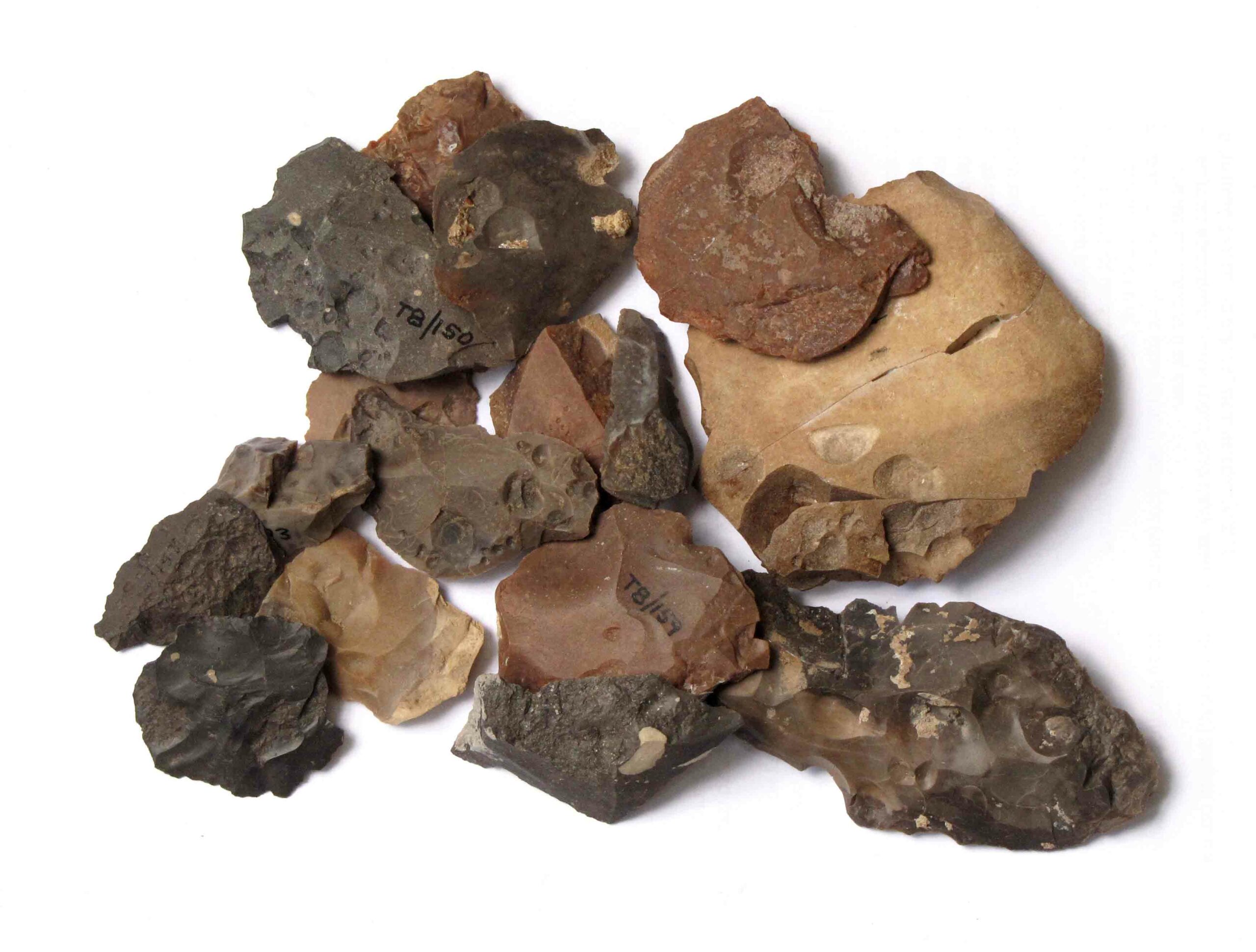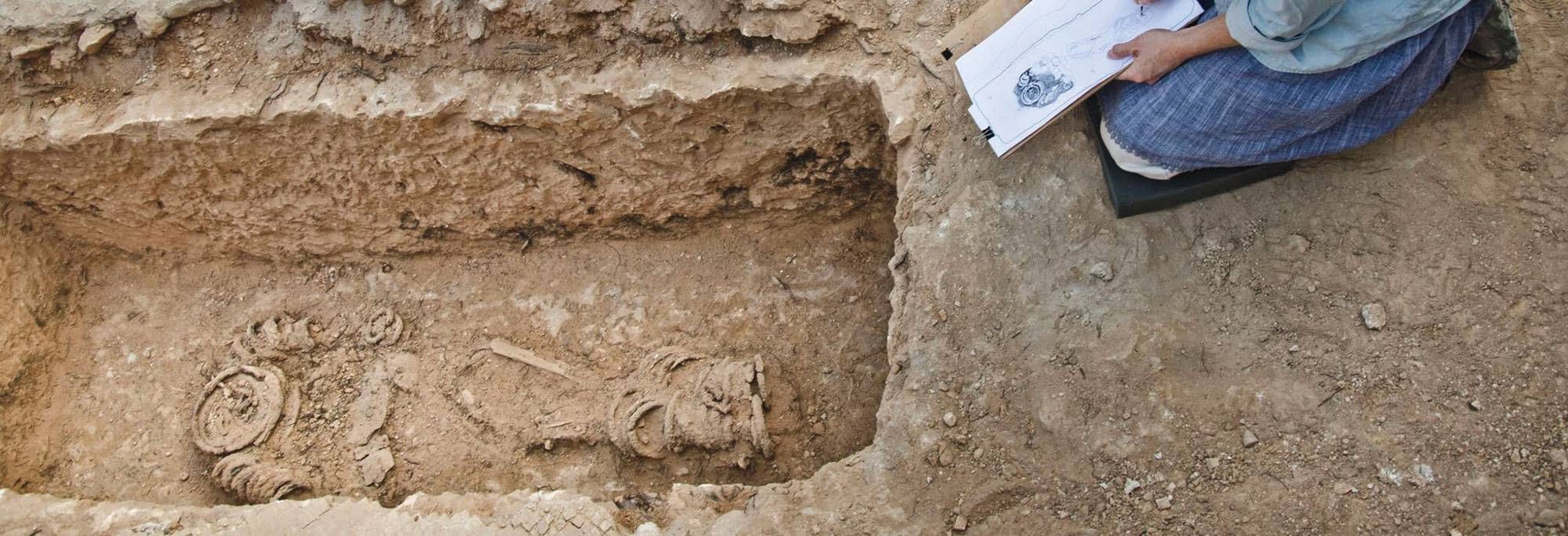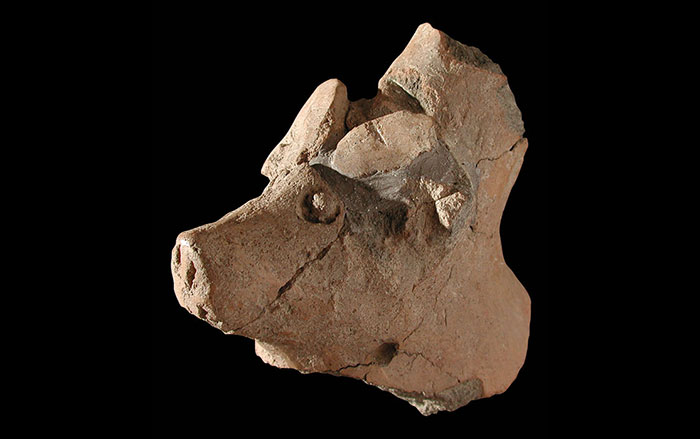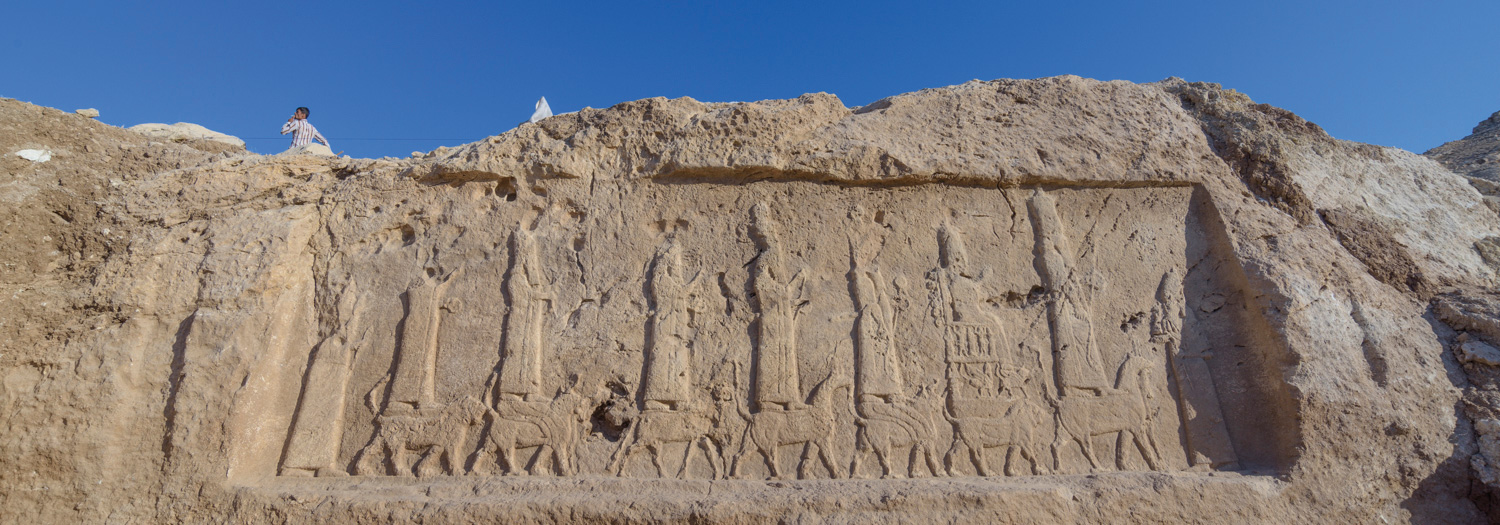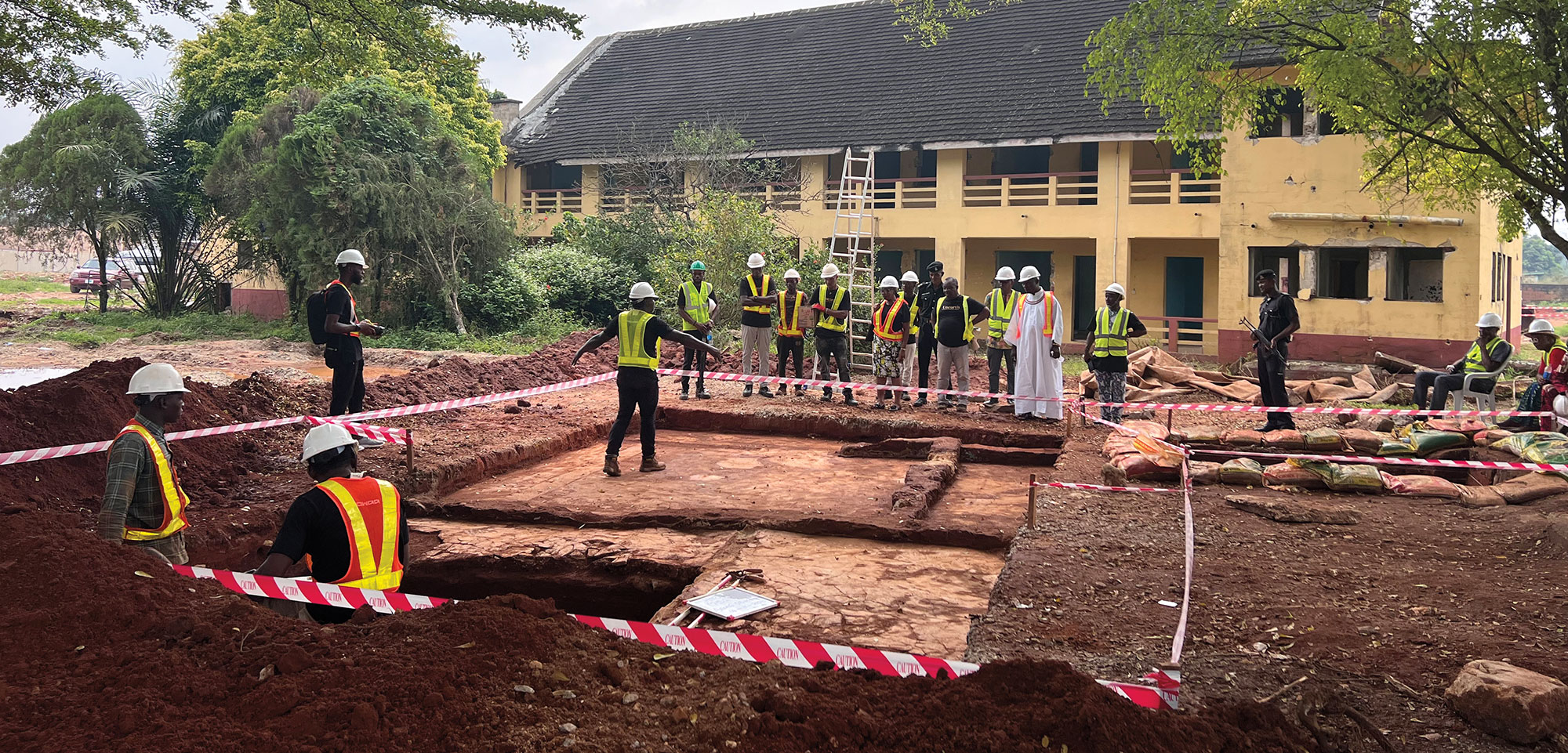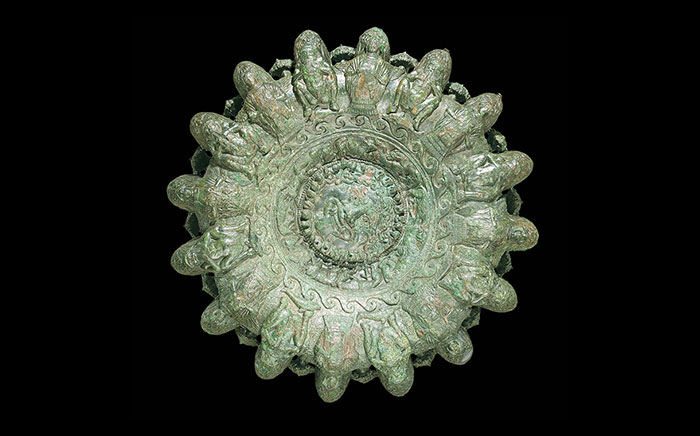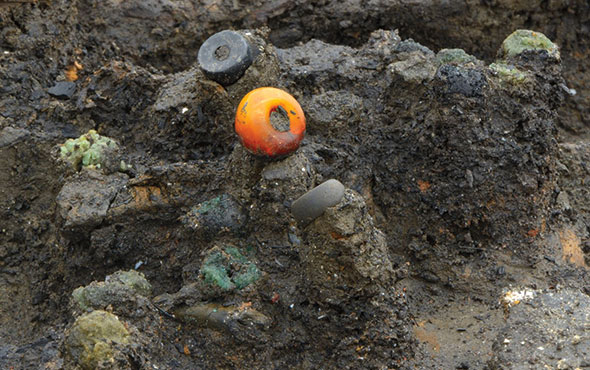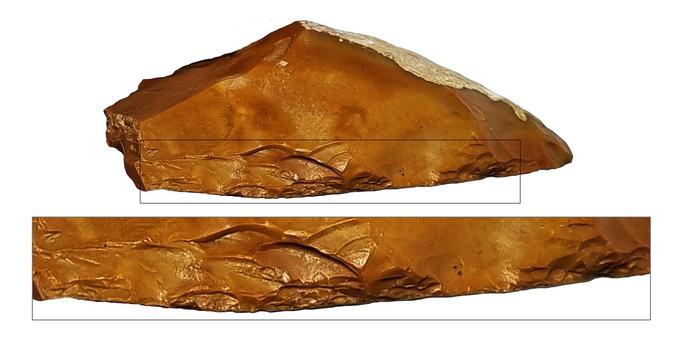
TEL AVIV, ISRAEL—According to a statement released by Tel Aviv University, a new study of 400,000-year-old Quina scrapers from central Israel’s sites of Jaljulia and Qesem Cave suggests that the tools were specifically developed to kill and process fallow deer. Quina scrapers feature scalloped, sharp working edges and were named for the site where they were first discovered in France. Evidence unearthed at Jaljulia and Qesem Cave indicates that elephants and other large herbivores had been hunted by Homo erectus until the animals disappeared from the region about 400,000 years ago. In response, early humans turned to fallow deer, which were considerably smaller and quicker, requiring different tools for hunting and processing meat and hides, explained Vlad Litov and Ran Barkai of Tel Aviv University. “Consequently, we see the emergence of the new Quina scrapers, with a better-shaped, sharper, more uniform working edge compared to the simple scrapers used previously,” Litov said. The researchers also noted that while other tools from Qesem Cave and Jaljulia were crafted from local stones, the Quina scrapers were made from flint sourced from a non-local home range of fallow deer in the Samarian highlands. “We found a connection between the plentiful source of fallow deer and the source of flint used to butcher them, and we believe that this link held perceptual significance for these prehistoric hunters,” Barkai added. Read the original scholarly article about this research in Archaeologies. To read about other finds from Qesem Cave, go to "Around the World: Israel."


